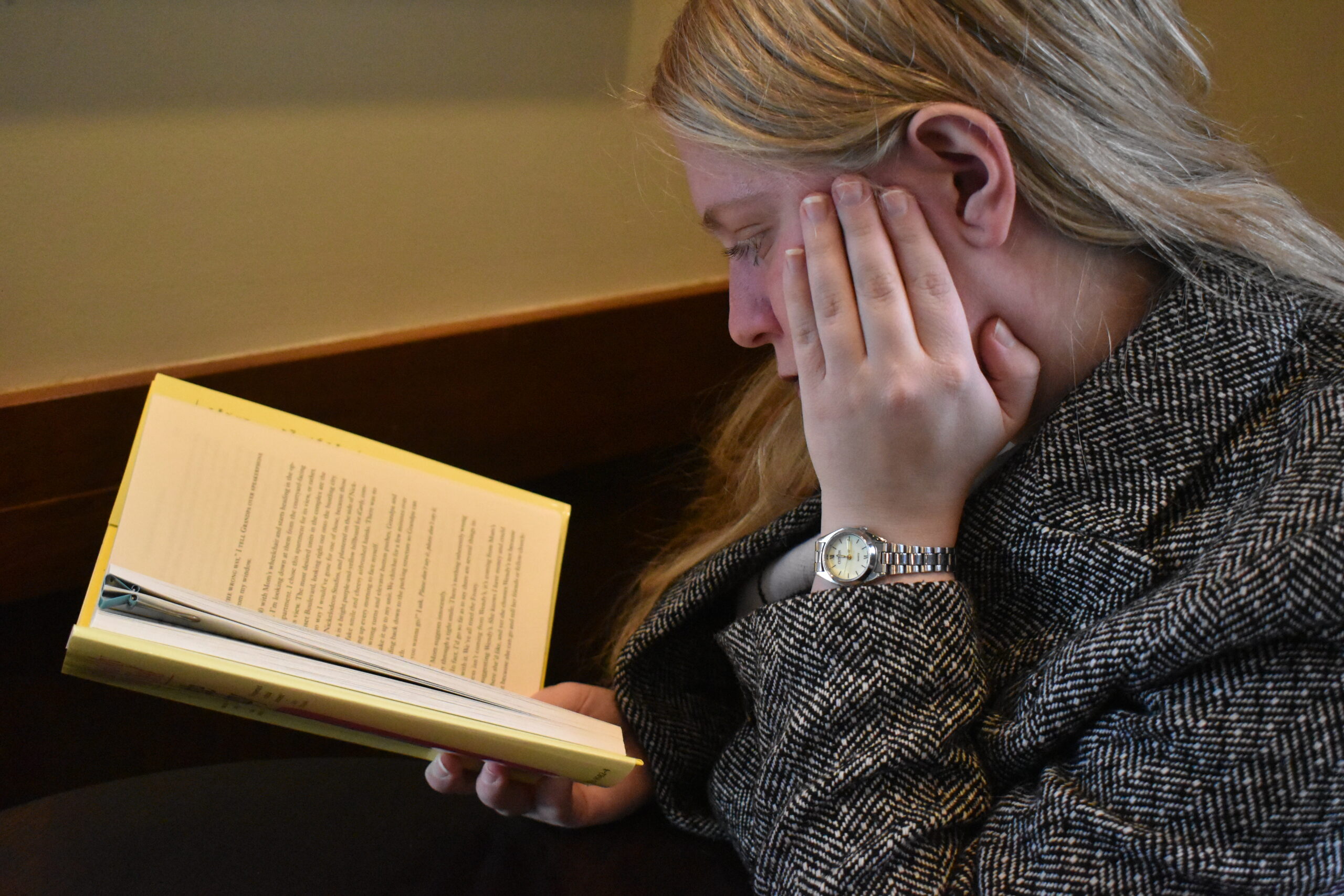Reading has been proven to sharpen your mind and relax your body. When your body is relaxed, your mind is able to calm down and destress. Photo by Kyleigh Tytula.
As students near the end of the first semester, assignments have started to pile up and stress about finals is weighing on everyone’s shoulders.
When people are experiencing high levels of stress or anxiety, it’s hard to focus on maintaining a positive mental health.
One Lethbridge College student, who wishes to remain anonymous, says she has really struggled with mental health in the past and has had to learn ways to work through it.
“My anxiety really peaked in high school and I found that listening to music helped to calm me down,” she said.
Music has been proven to act as a channel for processing many different emotions such as trauma and grief, but it also is often utilized as a way to calm anxiety.
If someone listens to music that is attached to a good memory, such as a concert or wedding, the brain instantly connects it to positive emotions.
“Believe it or not reading actually really benefitted my mental health during really stressful times. It helped me calm down and forget about everything weighing on me,” she said.
Many different studies have shown reading to have a positive impact over mental health because it helps to improve quality of sleep, sharpens your mind and relaxes your body.
With so many genres out there, it really depends on the reader to decide which genre is most effective to help relax and reduce stress.
“If those don’t work, I’ll go for a walk or play with my dog in my yard,” she said.
Pets can have a very positive influence on mental health as interacting with them causes your body to produce higher levels of dopamine and serotonin.
According to a blog on Thriveworks, dogs have been proven to have the biggest impact when reducing anxiety levels or depression.
Jody Villemaire, a psychology major at the University of Lethbridge, says that mindfulness is a great way to relax when battling with exam stress or end of semester anxiety.
“Mindfulness is about brining your mind to the present moment, not the past that you can’t change or the future,” Villemaire said.
Mindfulness is a skill many professionals recommend as there are many tools designed to help people.
“A good place to start would be breathing. Go someplace comfortable, let your body relax and then begin breathing normally before gradually working up to breathing from your diaphragm,” Villemaire said.
Villemaire suggests breathing in for eight seconds, holding for four before releasing for seven and to repeat this for two minutes.
Each individual is different so techniques that work for some won’t be helpful for others.
Professionals recommend a healthy amount of sleep, lots of water, exercise and as much social interaction you can get as making connections with people has proven to help mental health immensely.




